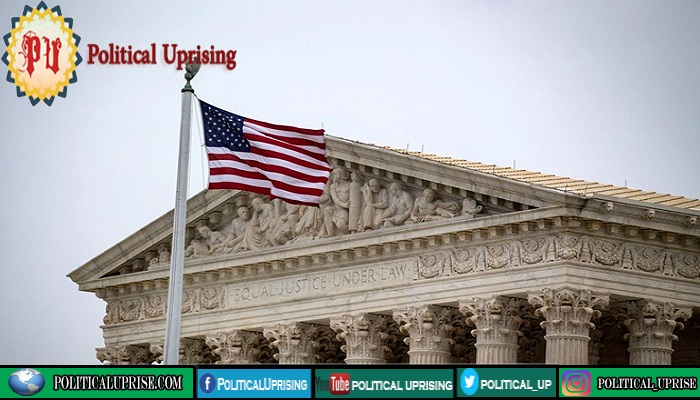US Supreme Court dealt a legal setback to Sudan, ruling that the African nation cannot avoid punitive damages in lawsuits.
US top court accused Sudan of complicity in the 1998 al Qaeda bombings of U.S. embassies in Kenya and Tanzania that killed 224 people.
Siding with hundreds of people hurt and relatives of people killed in the bombings, the justices ruled 8-0 to throw out a lower court’s 2017 decision that had freed Sudan from punitive damages awarded in the litigation in addition to about $6 billion in compensatory damages.
Justice Brett Kavanaugh did not participate in the case.
The case hinged on the Supreme Court’s view of a 2008 amendment to a federal law known as the Foreign Sovereign Immunities Act allowing for punitive damages.
The US Court of Appeals for the District of Columbia Circuit in 2017 upheld Sudan’s liability but ruled that the amendment was made after the bombings occurred and could not be applied retroactively.
Rebel chief,Sudan President agrees to form unity government
Justice Neil Gorsuch wrote in Monday’s ruling that for claims made under federal law, “Congress was as clear as it could have been when it authorized plaintiffs to seek and win punitive damages for past conduct.”
The ruling also ordered the D.C. Circuit to reconsider its decision that the foreign plaintiffs who sued Sudan under state law in the United States also could not seek punitive damages.
Starting in 2001, groups of plaintiffs sued in federal court in Washington under the 1976 Foreign Sovereign Immunities Act, which generally bars claims against foreign countries except those designated by the United States as state sponsors of terrorism as Sudan was in 1993.
A federal judge found Sudan liable and awarded the plaintiffs $10.2 billion, including $4.3 in punitive damages.
Sudan has faced a deepening economic crisis since the 2019 overthrow of its longtime ruler Omar al-Bashir.
President Donald Trump’s administration had urged the justices to side with the plaintiffs who sued Sudan.
Sudan, rebel groups agree on prosecution of those wanted by International Criminal Court
Twelve Americans were killed in the Aug. 7, 1998, attacks. The lawsuits involve 567 people, mostly non-U.S. citizens who were employees of the U.S. government and their relatives.
The damages had been imposed by default because for most of the litigation Sudan did not appear before a lower court to counter accusations that it harbored and provided support to the Islamist militant group al Qaeda. Sudan denied the allegations.
The truck bombs that detonated outside the embassies in Nairobi, Kenya and Dar es Salaam, Tanzania marked the first large-scale al Qaeda attack.



